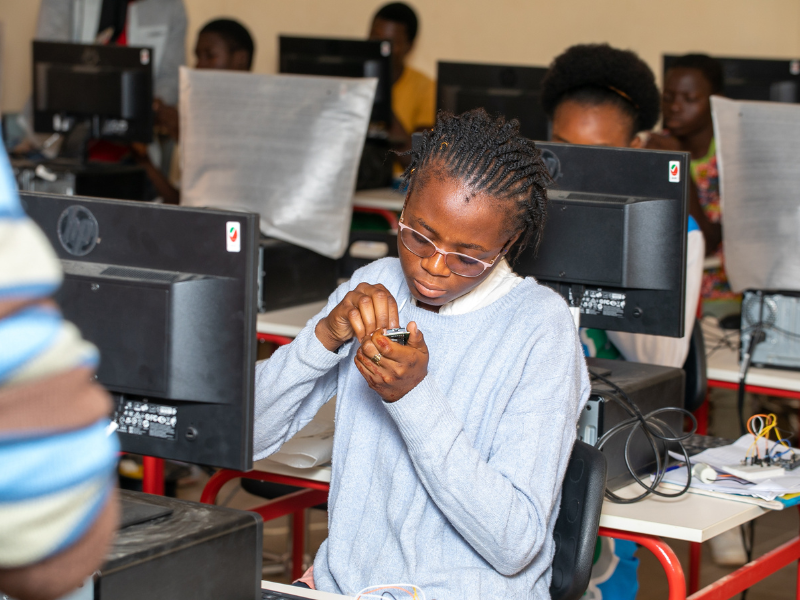Search
Viewing 1 - 3 of 3 evaluations
-

VET TOOLBOX2 project
Victoria DEOM | 29/10/2025 2025 | COWATER
Evaluation on the VET Toolbox 2 project is a multi-partner initiative operating across 11 countries in Sub-Saharan Africa, addressing the critical challenge of skills mismatch and youth unemployment. With a total budget of 16,250,000 EUR funded by the European Union and BMZ, the project was implemented by a consortium including Enabel, GIZ, Expertise France, The British Council, and LuxDev. The overall project aim was to better meet the human capital needs required by value chain development and investment programmes in the region. The specific objective was the enhanced delivery of demand-driven skills development and Vocational Education and Training (VET) tailored to investment needs. This was pursued through three main results: enhancing public-private dialogue on skills development, building capacity for demand-driven VET, and stimulating knowledge exchange from practical experience in investment contexts.The evaluation served the dual purpose of accountability and learning, seeking both to verify the achievement of the specific objectives and to provide strategic insights for future programmes. It covered the project implementation period, running from September 2020 through December 2025. The analytical framework systematically applied all six DAC criteria. A particular focus was placed on assessing the added value of the piloted opportunity-driven approach, which links training provision directly to identified economic opportunities. Furthermore, the analysis focused on the performance and challenges of the multi-agency consortium set-up and examined cross-cutting issues related to youth employment and gender integration within VET activities.
-

Digital for Girls and Women project (D4GW)
Victoria DEOM | 18/09/2025 2025 | Particip-technopolis
End term evaluation of the Digital for Girls and Women (D4GW) project, with a budget of €2.25 million financed by the Belgian government and implemented by Enabel, aimed to promote an inclusive, rights-based digital transformation across Belgium, Burkina Faso, and Uganda. Conceived as a pilot initiative, it was carried out in a context marked by security constraints (notably in Burkina Faso) and persistent gender gaps in digital access. Its objectives were to (1) economically empower women through increased access and better use of digital technologies and (2) empower people, especially women and girls, to claim their digital rights.This final evaluation was conducted for both summative and formative purposes, supporting accountability and generating learning for future scaling. It covers the implementation period from 2022 to 2025. The analytical framework relied on all six OECD-DAC criteria. These criteria were complemented by an analysis of gender integration, which is central to the project, as well as an in-depth analysis of implementation management in a multi-country and multi-stakeholder context. The thematic analysis focused specifically on coherence with national and international policies, the effectiveness of digital skills training models, and the key sustainability factors for the results achieved, given the pilot nature of the project.
-

Programme BeGlobal
Victoria DEOM | 30/04/2025 2025 | COTA-AEDES
L'évaluation porte sur le Programme BeGlobal. Il s'agit d'une initiative de la Coopération belge au développement, financée à hauteur de 8.571.375 € et mise en œuvre par Enabel en partenariat avec la DGD et la Direction générale de l'enseignement obligatoire et de la pédagogie spécialisée. Le projet s'inscrit dans le prolongement de l'ancien programme Annoncer la Couleur/Kleur Bekennen (ALC/KB) et vise à promouvoir l'Éducation à la Citoyenneté Mondiale (ECM) chez les jeunes (3-30 ans) en Belgique pour encourager un engagement individuel et collectif en faveur d'un monde plus juste, inclusif et durable. L'objectif spécifique est d'ancrer durablement l'ECM et les ODD dans l'enseignement en Belgique. Les principaux résultats se concentrent sur le soutien d'un environnement propice à l'intégration de l'ECM, le renforcement des acteurs de l'éducation (enseignants et partenaires) et la création d'opportunités pour les jeunes (15-30 ans) de s'engager concrètement dans la solidarité internationale.L'évaluation a été menée pour tirer les enseignements des phases de conception et de mise en œuvre, dans le but principal de formuler des recommandations stratégiques pour la prochaine phase du projet. Elle couvre la période allant du 1er septembre 2021 au 31 août 2024. Le cadre d'analyse s'est appuyé sur l'ensemble des six critères du CAD, avec un focus sur la pertinence, l'efficience, l'efficacité et la durabilité. Ces critères ont été complétés par des axes d'analyses spécifiques étudiant l'efficacité de l'approche inter-communautés (francophone et néerlandophone) et l'intégration des thèmes transversaux du genre et de l'environnement. Un des objectifs secondaires de l'évaluation consistait également à examiner les défis liés à l'approche LNOB (« Leave No One Behind ») dans l'atteinte d'un public diversifié.
